Delving into allergies in children and the allergens that can cause problems
Allergies in children can cause everything from sneezing and stuffy noses to hives and trouble breathing. Allergens are substances that cause the body’s immune system to overreact as if the substances were invaders. When the immune system begins to fight the invasion, it creates antibodies that cause the release of histamine and other chemicals.
This process causes allergic reactions. These reactions affect different parts of the body, including the respiratory system, the gastrointestinal system and the skin. Sometimes allergies run in families, but some children with no family history develop problems. Whatever the cause of the problem, our Plano pediatricians are here to advise, diagnose and treat pediatric allergies.
Airborne allergens can cause many cases of allergies in children
Airborne substances are common causes of pediatric allergies. Here are a few of the things that cause symptoms in children.
- Pollen from weeds, trees, grasses and other plants
- Mold, commonly found outdoors in damp areas, under rotting leaves or indoors in dark areas with poor ventilation
- Dust mites that live in dust, carpet, bedding, upholstered furniture and on human skin
- Cockroaches
- Pet dander, saliva and urine
Allergies caused by airborne substances can lead to symptoms, such as sneezing, coughing, congestion, and/or itching of the eyes, nose or throat.
Food allergies affect up to two million children in the United States
Food allergies can cause gastrointestinal and respiratory symptoms. The following foods cause almost all of children’s allergies.
- Wheat
- Peanuts and tree nuts, including walnuts, cashews and pecans
- Soy
- Cow’s milk
- Eggs
- Fish
- Shellfish
Food allergies can cause multiple symptoms.
- Respiratory symptoms, including coughing, wheezing, hoarseness and breathing issues
- Stomach problems, including diarrhea, stomach pain and vomiting
- Hives
- Watery, itchy eyes
In addition to allergies to airborne allergens and foods, some children also have allergic reactions to insects, chemicals, medications and smoke.
Diagnosing and treating allergies
Our physicians diagnose some allergies in children based on the child’s symptoms. However, other children may benefit from a referral to an allergist for one or more of the following tests.
- Some of the most common tests are skin prick testing and blood testing for airborne and food allergies.
- An elimination diet for food allergies can be helpful. This is where parents remove potentially troublesome foods from their child’s diet and then gradually reintroduce them.
- An allergist can conduct oral challenge tests for food allergies. During the test, the staff gives the child a very small portion of a food and carefully monitors the child’s reaction.
If testing determines that a child has allergies, treatment ranges from allergy medications and injections to avoiding the foods and substances that cause reactions.
Our Plano pediatricians help parents and children cope with allergies
Allergies in children are nothing to sneeze at. Our experienced Plano pediatricians help parents and children deal with allergy symptoms by providing diagnosis and treatment. Contact us for an appointment.

